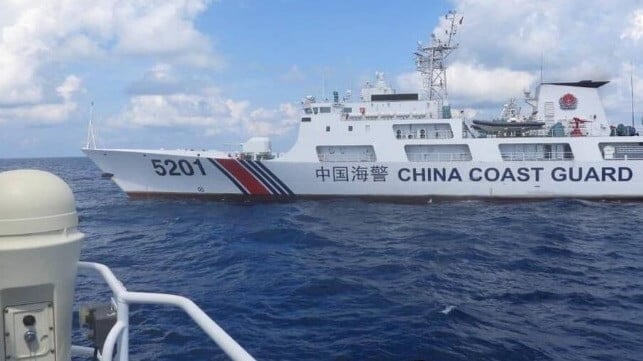ASEAN, China Edge Closer to S. China Sea Code of Conduct

Reflecting on its milestones as the ASEAN (The Association of Southeast Asian Nations) chair for 2023, Indonesia is reporting it has successfully negotiated for finalizing of a code of conduct (CoC) in the disputed South China Sea between all ASEAN countries and China.
Suring its ASEAN chairmanship this year, Indonesia has worked on guidelines to aid in resolving the South China Sea dispute with China. These guidelines were adopted on July 13 in Jakarta, during the ASEAN Foreign Ministers’ meeting with Wang Yi, the director of the Chinese Communist Party’s Central Committee Foreign Affairs Commission Office.
According to the Indonesian Foreign Ministry’s ASEAN security chief, Rolliansyah Soemirat, ASEAN countries working with China agreed to complete the CoC negotiations in three years’ time.
Soemirat told state broadcaster Antara News last Friday that he expects the code of conduct guidelines to be further endorsed by leaders during the ASEAN- China Summit this week in Jakarta.
“The CoC is expected to be a code of conduct that reflects international norms, principles and rules in line with the international law, especially UNCLOS, with the aim of achieving a stable, safe and peaceful South China Sea,” Indonesia’s Foreign Affairs Ministry said in a press statement.

that matters most
Get the latest maritime news delivered to your inbox daily.
The proposed ASEAN-China CoC is the first multilateral effort to resolve the escalating South China Sea dispute. However, bilateral commitments between ASEAN bloc members have been gaining traction. In May, the Philippines and Vietnam vowed to strengthen their maritime cooperation, with the conclusion of a substantive code of conduct on the South China Sea among their key priorities.
The progress of the ASEAN-China CoC negotiations is a dose of good news, coming a week after China released a “revised” national map that claims almost all of the South China Sea. The map has angered ASEAN member states including Brunei, Philippines, Vietnam and Indonesia. These countries have large swathes of their EEZs (Exclusive Economic Zones) in the South China Sea, which China now unilaterally claims.
